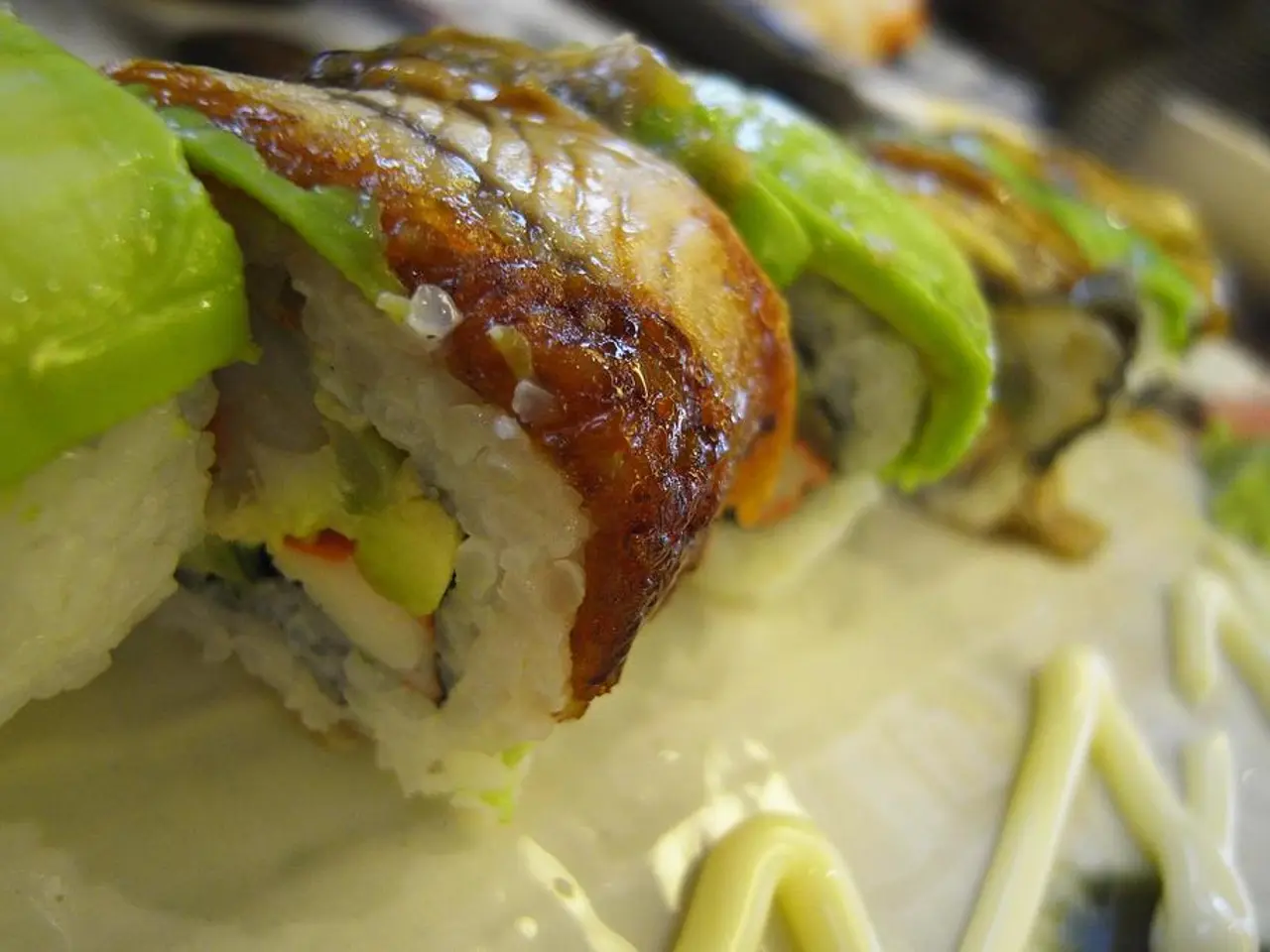Dietary choices for peritoneal cancer: Ingredients to incorporate and exclude
Peritoneal cancer, a type of cancer that affects the peritoneum - a thin layer of tissue lining the abdominal cavity and internal organs - can be challenging to navigate, especially when it comes to dietary choices. While specific studies on food groups and peritoneal cancer progression are scarce, general oncology nutrition principles can provide a helpful starting point.
Balanced Diet and Nutrient-Dense Foods
A balanced diet rich in fruits, vegetables, whole grains, and lean proteins is generally recommended to support immune function and body weight maintenance. This dietary approach can help maintain muscle mass, an essential factor for individuals with peritoneal cancer.
Limiting Red and Processed Meats
Limiting red and processed meats may be beneficial, as consumption of these has been linked to increased cancer risks in related gastrointestinal cancers. A diet low in saturated fat, sodium, and added sugar may be more beneficial for someone with peritoneal cancer.
Managing Fat Intake
Studies in ovarian cancer, which is often related to peritoneal cancer, have shown that high-fat diets can promote tumor growth, while low-fat, high-carbohydrate diets may reduce mortality risk. However, more research is needed to confirm these findings in the context of peritoneal cancer.
Gut Microbiome and Diet
There is emerging evidence that gut microbiome diversity, influenced by diet, might affect tumor progression and treatment response. This suggests that maintaining a diverse gut microbiome through a balanced diet could potentially benefit individuals with peritoneal cancer.
Protein Intake
Adequate protein intake, including animal protein, could be important for preventing malnutrition and sarcopenia (muscle loss) in cancer patients. However, direct associations vary, and it's crucial to consult with an oncology dietitian for personalized guidance.
Specific Food Sources
Examples of fat sources that someone with peritoneal cancer may include in their diet include olive oil, canola oil, peanut oil, flaxseed oil, seafood, sunflower oil, safflower oil, and certain oils. Protein sources may include dairy products, lean meat and poultry, eggs, seafood, beans, peas, lentils, nuts, seeds like pumpkin seeds, sunflower seeds, and chia seeds, soy products, and certain fortified beverages. Whole grains such as certain types of bread, oats, millet, quinoa, barley, and brown rice are also recommended.
Individualized Nutrition Advice
A medical team, including an oncologist and a dietitian, may provide more specific nutrition advice according to an individual's overall health, outlook, and other factors. It's essential for a person living with or recovering from peritoneal cancer to speak with a healthcare professional for further guidance about what to include or limit in their diet.
Plant-Based Diet and Peritoneal Cancer
Eating a plant-based diet may provide anticancer effects, including less oxidative stress and DNA damage, lower inflammation levels, improved insulin response, and higher levels of beneficial gut bacteria. However, more research is needed to confirm these benefits specifically for peritoneal cancer.
Peritoneal Cancer and Genetics
Peritoneal cancer may occur due to mutation within certain genes, such as the BRCA gene. It's crucial for individuals at a higher genetic risk to discuss their dietary choices with their healthcare team.
In summary, the recommended dietary approach for peritoneal cancer patients aligns with general oncology nutrition guidelines emphasizing balanced, nutrient-dense intake, avoiding excess saturated fat and processed meats, and maintaining muscle mass. While some studies in related cancers suggest benefits of low-fat diets and diets supporting gut microbial diversity, specific evidence for peritoneal cancer is limited and warrants further clinical research. Consulting with an oncology dietitian is advisable for personalized guidance.
- A balanced diet, rich in fruits, vegetables, whole grains, and lean proteins, is generally recommended for peritoneal cancer patients to support immune function and weight maintenance.
- Limiting red and processed meats may be beneficial for those with peritoneal cancer, as consumption of these has been linked to increased risks in related gastrointestinal cancers.
- While high-fat diets can promote tumor growth in ovarian cancer, more research is needed to confirm these findings in the context of peritoneal cancer.
- Maintaining a diverse gut microbiome through a balanced diet could potentially benefit individuals with peritoneal cancer, as gut microbiome diversity might affect tumor progression and treatment response.
- Adequate protein intake, including both animal and plant sources, could be important for preventing malnutrition and sarcopenia (muscle loss) in cancer patients.
- Examples of recommended food sources for peritoneal cancer patients include olive oil, whole grains such as certain types of bread, oats, and brown rice, and protein sources like dairy products, seafood, beans, nuts like pumpkin seeds, sunflower seeds, and chia seeds.
- It's essential for a person living with or recovering from peritoneal cancer to consult with an oncology dietitian for personalized nutrition advice according to their overall health and other factors.
- Peritoneal cancer may occur due to mutation within certain genes, such as the BRCA gene, highlighting the importance for individuals at a higher genetic risk to discuss their dietary choices with their healthcare team.




